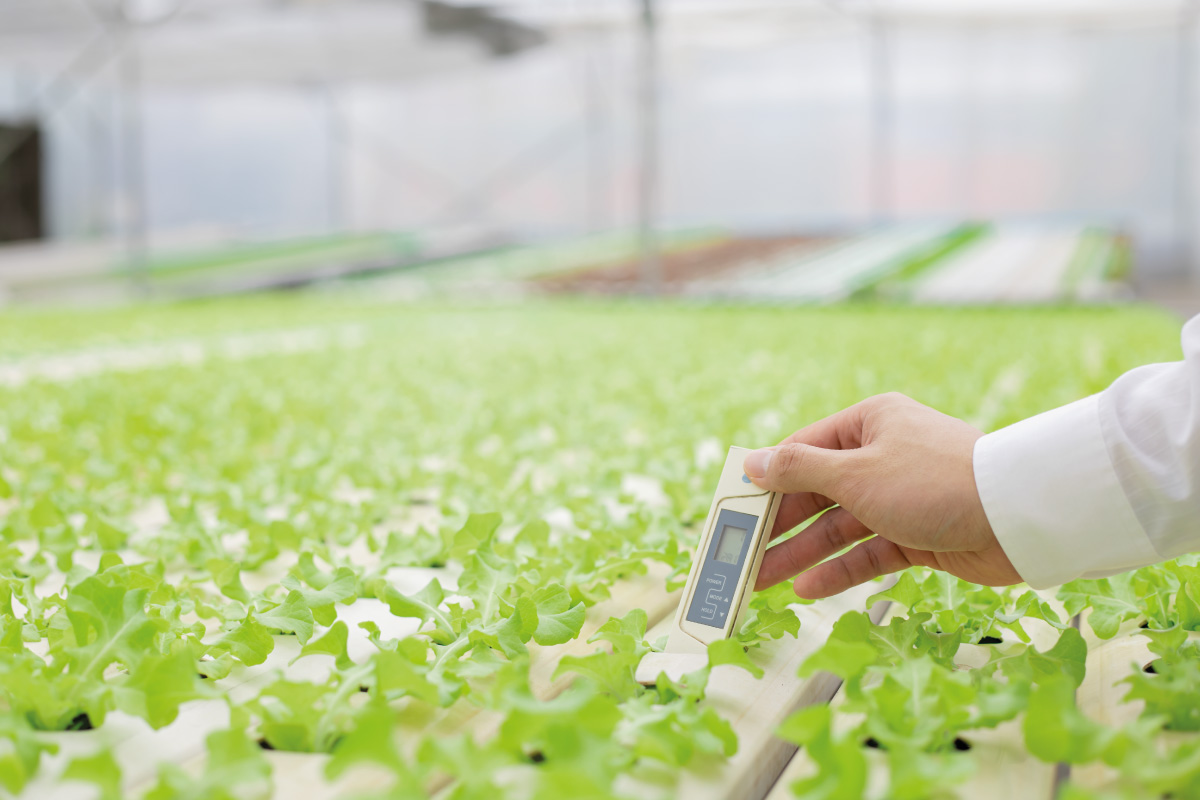
25 May Certification and controlled supply chain: the importance in agriculture
To eat healthy it is not only important to choose the right food, but also that it has been produced to the highest standards. From hygiene to cultivation parameters, passing through sustainability. Let’s discover the certifications of the agricultural sector.
In common use, the term salad refers more generically to the set of vegetables that have edible leaves in raw and usually seasoned form. Over time, it has also become synonymous with dishes made up of various kinds of vegetables, always raw, sometimes even minced. It is a dish that abounds on the tables of Italian families, typical of the famous “Mediterranean diet” and present in every healthy and correct meal plan. In light of this, it seems obvious that such a widespread and consumed product should arrive on supermarket shelves only after having gone through – and passed – a production process that complies with all the standards imposed by national and international regulatory bodies. In short, it must have acquired the status of “certified”.
On the subject of certified salad, over the years, several steps forward have been made by the media and the world of information in general, which have gradually produced a collective awareness on the subject, underlining in the minds of consumers the importance of certification.
Certified salad: what it implies in practice
The certification process, as mentioned, is established by specifically appointed control bodies, is very rigid and long and involves several specialized companies precisely in examining specific aspects (organizational, production and marketing) of each company engaged in the agricultural sector.
Each legislation, of course, has its own peculiarities, but most – at least the most widespread – are united by the monitoring of parameters such as compliance with good hygiene and cultivation practices or the healthiness of the environments of production sites.
These rigorous procedures concern not only the production companies specifically, but each player in the supply chain (clearly for the activities that are their part) and must be periodically implemented in order to maintain the certification.
Some examples: the Altamura OP certifications
In Altamura OP, for example, food safety has always represented a priority aspect, to which respect for the ecosystem of the generous place that hosts its crops, sustainability and safety of all workers who contribute to generate the quality of its products.
To do its part in the best possible way, it has adopted the highest hygienic-sanitary standards and for its salads it has undertaken to obtain important certifications – some even on a voluntary basis – in full compliance with national, community and international regulations.
Among these, by way of example, we can mention:
- BRC Food Certification: the standard that allows the company to keep safety and quality under control along the food production line;
- Global G.A.P.: the certification on Integrated Safety in Agriculture, or systematic use of good agricultural practices aimed at reducing the use of pesticides and fertilizers for the cultivation of fruit and vegetables;
- QS Quality Scheme G.A.P.: the certification that ensures the hygienic-sanitary quality of salads from the field to distribution (accessible only to companies that obtain the Global G.A.P.);
- Global G.A.P. Chain of Custody: the certification that ascertains the so-called “Chain of Custody” through the systematic collection of evidence that allows documenting the history of the product along the various stages of production and commercial distribution;
- BIO SUISSE: certification relating to standards and specific directives for organic products;
- Leaf Marque: certification that guarantees that the products have been grown and, where applicable, transformed following the principles of the requirements of the LEAF Marque standard;
- SEDEX: organization that ascertains, according to its own quality standards, that the company operates in full compliance with the rights of workers.
Altamura OP’s Quality First philosophy
The words of Dr. Paola Ferrara, Quality Manager of Altamura OP: “The earth is the womb of life. This, in Altamura OP, represents a mantra, because it is from the earth that the foundations are born to produce vegetables of the highest quality that comply with extremely restrictive national and international standards.
For this reason, quality is monitored throughout the supply chain, starting from the preparation of the soil up to the packaging of I and IV range vegetables in compliance with biodiversity and good agricultural practices in terms of hygiene, production and health and safety. of operators, using products of natural origin for Organic Production. In addition, the high attention paid to renewable energy sources and the use of low environmental impact machinery. All this is possible thanks to the support of attentive and qualified staff.
The Altamura OP organic sector is in continuous growth and development, regulated and defined at community level, in which no chemical product is used.
One of the latest news is the adhesion of the farms and packaging plants of Altamura OP to the Piana del Sele Rucola PGI Consortium. The Protected Geographical Indication, in fact, is reserved for the product that meets the conditions and requirements established by the Piana del Sele Rocket Production Regulations.”
